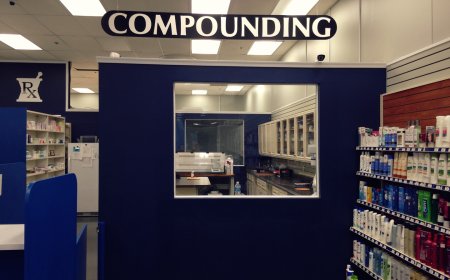INTRODUCTION TO EBITDA FOR KIDS AND ADULTS

EBITDA
In the EBITDA formula, we add up the earnings and then subtract the interest, taxes, depreciation, and amortization. This gives us a simplified view of a business's profitability without factoring in certain expenses.
FORMULA:
EBITDA = Earnings + Interest + Taxes + Depreciation + Amortization
Earnings: The total money earned from selling goods or services.
Interest: The interest expenses incurred on loans or borrowed money.
Taxes: The taxes paid to the government on earnings.
Depreciation: The decrease in value of assets (like equipment, vehicles) over time.
Amortization: The gradual reduction in the value of intangible assets (like patents, trademarks) over time.
EXAMPLE: (For Kids)
1) Imagine you have a little shop where you sell delicious chocolates. Every day, people come to your shop and buy chocolates from you. EBITDA helps us figure out how much money your shop is making.
we'll break it down step by step:
Earnings: Earnings means the total money you make from selling chocolates. It's the money you get after taking away the cost of buying the chocolates from the sales you make. So if you buy chocolates for 100 rupees and sell them for 200 rupees, your earnings are 100 rupees.
Interest: Interest is like a fee you pay when you borrow money from someone. But as a small shop owner, you might not have any loans or interest to pay, so we can skip this for now.
Taxes: Taxes are the money you give to the government. In India, businesses have to pay taxes on their earnings. As a shop owner, you might have to pay a small amount of tax on your chocolate sales. Let's say you have to pay 10% tax, so if you earned 100 rupees, you would give 10 rupees as tax.
Depreciation: Depreciation is a big word that means the value of things you own going down over time. For example, if you have a fridge in your shop to keep the chocolates cool, it might get old and its value decreases. But don't worry about this word for now, as a small shop owner, you don't need to worry about depreciation.
Amortization: Amortization is another big word that means spreading out the cost of something over time. But as a small shop owner, you don't need to worry about this word either.
2) Imagine you have a little shop where you sell toys. You buy toys from a wholesale market and sell them to kids in your neighborhood.
Let's break it down step by step:
Earnings: Earnings mean the total money you make from selling toys. It's the money you get after subtracting the cost of buying the toys from the sales you make.
Interest: Interest is like a fee you pay when you borrow money from someone. As a kid with a shop, you probably don't borrow money or pay interest.
Taxes: Taxes are a part of the money you give to the government. In India, businesses have to pay taxes on their earnings. As a shop owner, you might have to pay a small amount of tax on your profits.
Depreciation: Depreciation is when things you own become less valuable over time. For example, if you have a toy that gets old and worn out, its value decreases. In business, we consider this decrease in value as an expense. But don't worry, as a kid with a shop, you don't have to worry about depreciation.
Amortization: Amortization is similar to depreciation, but it's for things like loans or debts that you need to pay back over time. As a kid with a shop, you don't have to worry about amortization either.
3) Ice Cream Truck:
Imagine you have an ice cream truck, and you sell ice cream to kids in your neighborhood. EBITDA is the money you make from selling ice cream without counting the cost of buying the ice cream or any taxes you might have to pay.
4) Candy Shop:
Suppose you have a candy shop with lots of colorful candies. EBITDA is the money you earn from selling candies without considering the cost of buying the candies or any taxes you might have to pay.
5) Flower Stand:
Imagine you set up a small stand where you sell beautiful flowers. EBITDA is the money you make from selling flowers without counting the cost of buying them from the market or any taxes you might have to pay.
EXAMPLE: (For Adults)
1) :Revenue: RestaurantThe money earned from customers who pay for the food they order at the restaurant.
Expenses excludfrom ed EBITDA:
Cost of ingredients: The money spent on buying fresh ingredients like vegetables, spices, and other items needed for prdisheseparing the .
Staff salaries: The wages paid to the employees working at the restaurant, such as chefs, servers, and other staff members.
Taxes: The money paid to the government based on the restaurant's earnings.
EBITDA: The profit earned by the restaurant solely from food sales, without considering the excluded expenses (cost of ingredients, staff salaries, and taxes).
2) Software Company:
Revenue: The money earned from selling computer programs to businesses or individuals.
Expenses excluded from EBITDA:
Cost of software development: The money spent on creating and testing the software programs.
Employee salaries: The wages paid to the employees involved in developing the software, such as programmers and designers.
Taxes: The money paid to the government on the company's earnings.
EBITDA: The profit earned by the software company exclusively from software sales, without factoring in the excluded expenses (cost of software development, employee salaries, and taxes).
3) Retail Store:
Revenue: The money earned from selling clothing and accessories to customers visiting the store.
Expenses excluded from EBITDA:
Cost of inventory: The money spent on buying the clothes, accessories, and other products sold in the store.
Staff salaries: The wages paid to the employees working in the store, such as salespersons and other staff members.
Rent: The money paid for leasing or renting the physical space where the store operates.
Taxes: The money paid to the government on the store's earnings.
EBITDA: The profit earned by the retail store solely from product sales, without considering the excluded expenses (cost of inventory, staff salaries, rent, and taxes).
CONCLUSION:
In simple terms, EBITDA focuses on the money earned from sales while excluding specific expenses like the cost of buying ingredients or products, staff salaries, rent, and taxes. This gives a clearer view of the business's profit, as it looks specifically at the earnings from core sales activities.
What's Your Reaction?
 Like
0
Like
0
 Dislike
0
Dislike
0
 Love
0
Love
0
 Funny
0
Funny
0
 Angry
0
Angry
0
 Sad
0
Sad
0
 Wow
0
Wow
0







































































